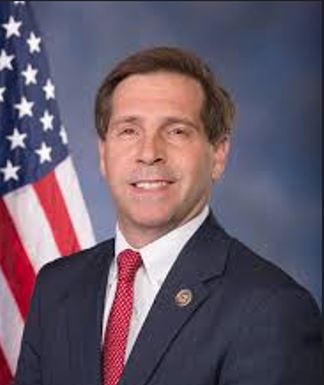
In a Friday voice vote, the House Appropriations Energy & Water Subcommittee advanced to the full committee a Department of Energy budget bill that proposes more than $8.3 billion for the agency’s Office of Environmental Management, down about $160 million from this year.
The 2025 spending bill was reported to the full House Appropriations Committee on a motion by Rep. Mike Simpson (R-Idaho). The measure advanced out of committee following a meeting of about 30 minutes in which senior Democrats called the GOP-backed measure overly partisan and criticized cuts, mostly in areas unrelated to DOE nuclear-weapons programs.
Released Thursday ahead of the subcommittee vote, the bill would give DOE’s nuclear cleanup branch about $100 million more than what President Joe Biden’s (D) administration sought.
That includes about $7.13 billion for Defense Environmental Cleanup, the largest tranche of funds in the Environmental Management budget, down a little from the nearly $7.3 billion appropriated for fiscal 2024 but more than the $7.1 billion requested by the White House.
For Non-Defense Environmental Cleanup, there is $324 million, again coming in less than the $342-million appropriation in 2024 but more than the $315 million sought by the White House.
The Uranium Enrichment Decontamination and Decommissioning Fund would receive $864 million, more than $7 million above the fiscal 2024 level and the administration request.
Rep. Chuck Fleischmann (R-Tenn.), chair of the energy and water subcommittee, lauded the proposal.
“I’m proud that the Fiscal Year 2025 Energy and Water Development appropriations bill continues to build off the work of our FY24 bill to strengthen America’s strategic nuclear stockpile, revitalize our ability to enrich uranium domestically, invest in our long-term energy security, and maintain our country’s ports and inland waterways,” Fleischmann said in the Thursday committee press release.
The bill would also provide about $25.5-billion for the National Nuclear Security Administration, which is $1.3 billion above the fiscal enacted level, the subcommittee said.
“The bill prioritizes nuclear weapons activities, fully funding all major stockpile modernization activities” and provides more funds for plutonium pit production, Fleischmann said.
Alluding to the bill’s increased funding for DOE’s advanced reactors program, Fleischmann also said that when it comes to nuclear energy, “we cannot seed leadership on nuclear energy to China and Russia.”